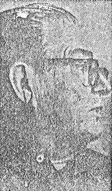THE SUNDAY STAR
Washington, D.C, December 25, 1966
BOOKS: Conflicting Views of the Emergence of the West
The Mask of Jove: A History of Gracco-Roman Civilization
From The death of Alexander to The Death of Constantine. By Stringfellow Barr
Lippincott. 598 pages. $15.
The End of the Ancient World. By Santo Mazzarino. Alfred A. Knopf. 198 pages.
$4.95.
The decline of Classical Civilization is once
more drawing scholarly attention, as can be seen in growing concern with the
life and work of Edward Gibbons and in a sharp increase of historical works on
the subject, such as Ramsay MacMullen’s “Enemies of the Roman Order: Treason,
Unrest, and Alienation in the Empire” (Harvard University Press). This return to
a subject which has been discussed so frequently and over such a long period may
indicate growing concern over the decline over our own civilization. But it is
evident that the need to reopen the problem so frequently would not exist if the
problem itself had ever been clearly envisaged.
Lack of agreement on what the problem is can
be seen clearly in these two books of Barr and Mazzarino. In fact, it would be
difficult to imagine two books on any subject more different than these. Barr’s
lively and well-written volume is almost straight cultural history, filled with
quotations from contemporary writers. Mazzarino has a hundred page on the
historiography of the idea of decadence from Lucretius and Cicero to the
present; this is followed by a briefer section of comments on a variety of
scholarly works dealing with Roman religion, family life, economics and such.
But significantly, Barr’s book stops at A.D. 337, while Mazzarino’s chief
interest is in the following two centuries. The two authors are concerned with
the same subject but see it in terms of two quite different problems. To
Stringfellow Barr the decline of antiquity lies in the eclipse of Greek culture
of Roman Power; to Mazzarino the decline of antiquity lies in the collapse of
Roman Power. In Barr’s broad and cultured view the turning point was as the
second century B.C., which he sees as the beginning of an age of “Violence and
Rhetoric” (the title of his third chapter).

Stringfellow Barr
On the other hand, Mazzarino’s narrower and rather uncritical ( but documented )
examination of unintegrated topics reaches the rather surprising conclusion that
there was no “decadence” but only an accidental political and social crisis
which allowed the barbarians to destroy Rome. As he puts it (pp.185-186):
“The barbarians tore to pieces an empire which was still full of life….The age
of the death of Rome threw up individuals of great stature, sometimes giants:
Constantine, Julian the Apostate, Stilicho. Technical innovations and the
application of centuries-old discoveries, which had been neglected up to that
time, make it clear that we are not dealing with a world that has fallen
asleep….We may see that there was no decadence in the fields of poetry or art of
religious life, and also perhaps in the intimate recesses of home life and its
effects. There is, however, a crisis in those things which concern the
state….The literature and art of the late empire are expressions of an intuitive
sensibility of a high order which can still move or exalt us. But there was a
political and social crisis even if there was not a general decadence. The great
creators lived in the midst of a civilization which left the solitary or which
felt weary, although it displays to us infinite spiritual resources. The Roman
empire was struck dead by the barbarians.”
No agreement and no conclusions can
be drawn from points of view as different as these. What is even more
disgraceful is that no dialogue or discussion is possible. The fault is not all
on one side. Barr has the uncritical mythology of the typical Classicist, while Mazzarino has the overspecialized paralysis of the usual historian. It is
commentary on the undeveloped techniques of history that it has not yet achieved
the necessary common vocabulary, the standards of judgment, nor the analytical
techniques which would allow the discussion to move fruitfully on a problem as
important to us as the collapse of our best known predecessor civilization.
--CARROL QUIGLEY
Scan of original review